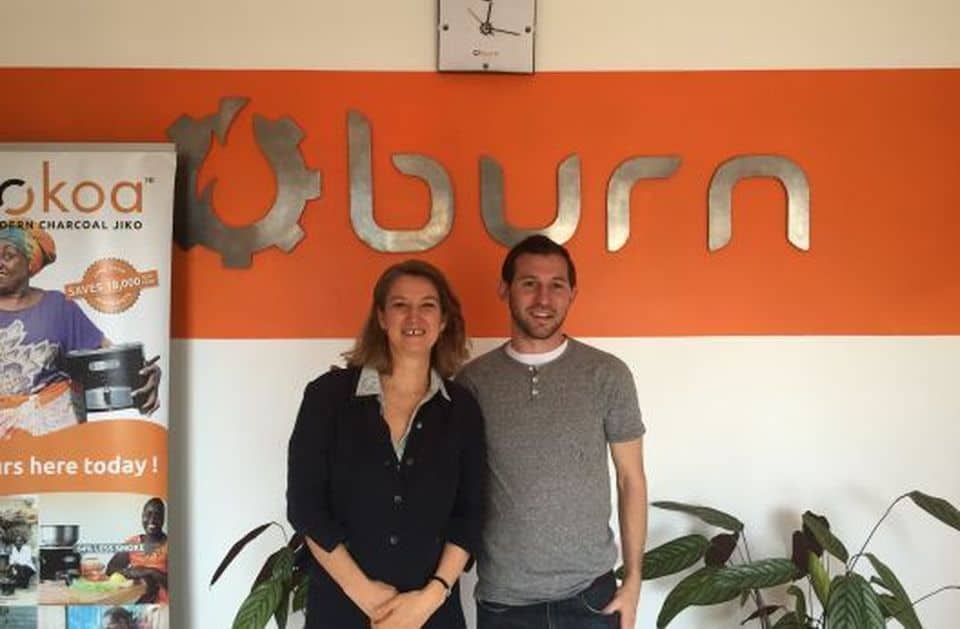Written by Sarah Butler-Sloss, Ashden Founder Director
I haven’t been to Kenya for more than ten years and Nairobi has transformed almost beyond recognition in that time, with its glass-fronted skyscrapers and traffic-choked streets.
In fact it was in Kenya that I was first inspired to set up the Ashden Awards for sustainable energy, having toured a boarding school on the outskirts of Nairobi and seen the conditions in which the cooks were cooking and heating water in the school kitchen. Hunched over open fires in a blackened, smoke-filled room next to huge piles of wood, they’d been there since 5am, the food was taking forever to cook and the women complained of eye irritations and respiratory problems.
Contrast that with the cleaner, safer cooking environment that improved cook stoves provide – no smoke to inhale, dramatically reduced eye and lung infections, no dirty clothes, quicker cooking time so no early starts, and a hugely reduced wood bill for the school to pay.
This time around I had the chance to meet with one of our earliest winners from 2001, the Rural Energy Technology Assistance Programme (RETAP), who introduced energy-efficient stoves in schools that cut wood use by up to 75%. I remember thinking at the time, why doesn’t every school do this? Now the legislation is in place to ensure that all schools are using safer cleaner stoves so we’ve come a long way. RETAP made the stoves affordable by setting up a revolving fund for schools to buy them on credit, and pay back from their savings on wood in three years.

It was great to hear from RETAP who have been a leading light in the field and innovator from whom many other stove producers have learnt, and who currently supply approximately half of the stove market in Kenyan schools. At the time of winning their Award, and with the help of the GEF Small Grants Programme, RETAP were also starting to run a woodlot programme to provide schools with fast-growing eucalyptus and other seedlings so that they become self-sufficient in fuelwood. This has helped to transform cooking in schools from a dirty and environmentally destructive activity to one that is closer to CO2 neutral.
Fast forward some ten years and I also had the chance to see the very slick process behind the efficient charcoal-burning Jikokoa™ stove made by BURN Manufacturing, winner of last year’s Ashden Clean Energy for Women and Girls Award. The stove itself represents a step-change in the design and efficiency of domestic charcoal-burning cookstoves, dramatically improving the health and wellbeing of its users.
As well as being an aspirational household product, it cuts down on smoke and soot by more than 60% compared to the widely used Kenya ceramic jiko, and significantly reduces the time spent cooking and collecting wood. At around 3500 Kenyan shillings ($35), the initial outlay for BURN’s stove is also considerably less than an LPG stove.
An exciting and ambitious business, BURN has a well-run production line with high health and safety standards, great employee engagement, and training and career advancement opportunities, particularly for women who make up over half the workforce. It feels extremely modern and very much at the forefront of a ‘new’ Kenya.

When Burn won their Award last summer, they had sold 62,000 stoves since starting in 2011. They’re now selling 10,000 a month with a new improved longer-lasting version going into production as well as plans to diversify their products and start exporting to Uganda. What was really nice to hear was how BURN had spent the prize money associated with their Award on a series of radio ads that resulted in around 50,000 enquiries which in turn led to an astonishing 95% growth in sales over three months.

BURN Manufacturing and RETAP are just two Ashden winners at the vanguard of a clean energy revolution in Kenya. In the next blog I’ll focus on how two of our other Kenyan winners are using advances in technology to help people leapfrog into access to electricity.
This article was first published by The Huffington Post.

